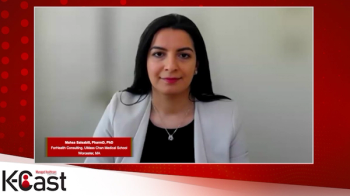
FDA Expands Akili's EndeavorRx Game-Based Digital Therapy for ADHD Eligibility to Ages 8-17
As the only FDA-approved, game-based digital therapeutic, EndeavorRx’s eligibility is expected to more than double the number of pediatric patients with ADHD who have a prescription from a healthcare provider, due to the increased age range.
Akili, Inc., a digital medicine company, recently got FDA approval to extend the
As the only FDA-approved, game-based digital therapeutic, EndeavorRx’s eligibility is expected to more than double the number of pediatric patients with ADHD who have a prescription from a healthcare provider, due to the increased age range.
The digital treatment offers an immersive video game experience that is created by world-class neuroscientists and award-winning game designers that can be accessed on mobile devices.
According to the EndeavorRx website, the tool uses sensory stimuli and motor challenges to target areas of the brain that play a key role in attention function.
Kids are challenged to multitask and ignore distractions by navigating courses, collecting targets and avoiding obstacles.
An algorithm measures performance and customizes each patient’s treatment in real time. Parents can also follow their child’s treatment and track daily efforts through the Endeavor app.
It's recommended to play for no more than 25 minutes, 5 days a week for at least 4 consecutive weeks, or as prescribed.
A similar Akili tool, EndeavorOTC™, is also offered to adults with ADHD.
The FDA’s label expansion is based on a
Scott Kollins, MD, PhD, chief medical officer at Akili, said in a press release, the study for adolescents “demonstrates that EndeavorRx is a safe and effective treatment option for millions of kids and teens struggling with ADHD – particularly important given the ongoing stimulant medication shortage.”
Additionally, this study revealed that adolescents using EndeavorRx also saw significant improvement in clinician-rated ADHD symptoms, as measured by the Attention Deficit Hyperactive Disorder Rating Scale-5 (ADHD-RS) inattention subscale and total scale scores.
ADHD-RS is a clinician-administered questionnaire based on information collected from the child's caregiver.
Following treatment, participants in the study showed significant improvement on both the inattention subscale and total score of the ADHD-RS (p<0.0001 for both).
A prespecified responder analysis also showed that 27.1% of all participants in the study demonstrated at least a 30% reduction in total scores on the ADHD-RS, similar to the initial STARS-ADHD trial in 8- to 12-year-old children with ADHD (24%).
Significant improvements were also observed for parent and child ratings of attention improvement, as well as parent ratings of function across domains such as peer relationships, academic functioning, behavioral functioning, homework functioning and self-esteem.
Overall, four (2.5%) participants experienced a treatment-emergent adverse device event, including three decreased frustration tolerance and one headache ‑ all mild or moderate.
There were no serious adverse device events, the study reported.
Newsletter
Get the latest industry news, event updates, and more from Managed healthcare Executive.




















